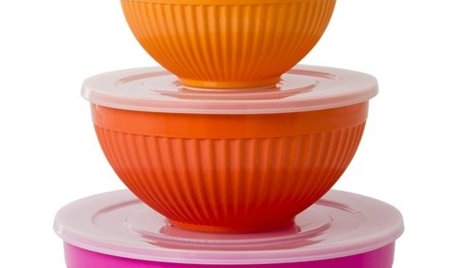Kidney failure
arttulip
16 years ago
Related Stories

PETSGarden Alert: 22 Plants to Keep Away From Pets
Avoid potential danger by keeping dogs and cats away from these landscaping and houseplant favorites
Full Story
FLOWERSGreat Design Plant: Lilies
Try these delightfully exotic stunners for paintbox colors, deep fragrance and intricately detailed petals
Full Story
PETSPet-Proofing Your Home: A Room-by-Room Guide
Not all pet dangers are obvious. Keep furry friends safe and sound by handling all of these potential hazards
Full Story
PRODUCT PICKSGuest Picks: 20 Color-Happy Kitchen and Dining Accessories
Brighten up! These trays, cups, utensils and more provide a joyous color jolt to diners and cooks alike
Full Story
KITCHEN DESIGNKitchen Sinks: Antibacterial Copper Gives Kitchens a Gleam
If you want a classic sink material that rejects bacteria, babies your dishes and develops a patina, copper is for you
Full Story
BATHROOM DESIGNOutfit Your Shower With the Right Bench for You
Whether you want a simple perch or a massive seat in your shower, our guide can help
Full Story
GARDENING GUIDESBackyard Birds: Invite Entertaining Hummingbirds Into Your Garden
Hummingbirds — unique to the Americas — zip through open landscapes seasonally or year-round. Here’s how to attract them
Full Story
PETSSo You Want to Get a Cat
If you're a cat lover, the joys outweigh any other issue. If you haven't lived with one yet, here are a few things to know
Full Story
GARDENING GUIDESHouzz Call: What’s Your Favorite Backyard Beauty?
The simple, honest daisy is this writer’s go-to garden flower. We want to hear which plant, flowering or otherwise, gives you special joy
Full StoryMore Discussions






lucy
Judy_B_ON
Related Professionals
Benbrook Landscape Architects & Landscape Designers · Harvey Landscape Architects & Landscape Designers · Elgin Landscape Contractors · McKinney Landscape Contractors · Cary Landscape Contractors · Laguna Hills Landscape Contractors · Lemay Landscape Contractors · Lexington Landscape Contractors · Lorain Landscape Contractors · Nanuet Landscape Contractors · Ridgewood Landscape Contractors · Tacoma Landscape Contractors · Wailuku Landscape Contractors · Homer Glen Carpenters · Oak Grove Carpentersapollog
apollog
rusty_blackhaw
apollog
rusty_blackhaw
jannie